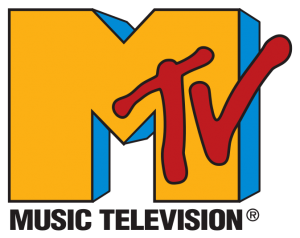30 years of MTV
For original MTV VJ Mark Goodman, the news that music network is celebrating its 30th anniversary this weekend is hard to fathom. “It’s freaking weird” – he tells Rolling Stone. “I’ve lived like three lifetimes since then. It’s just so long ago, and yet it also seems like yesterday. It’s a weird number – and it’s hard to believe that we’re still talking about this 30 years down the road.”
MTV launched on August 1st, 1981 at 12:01 a.m. The first images broadcast were the launch of the Apollo 11, followed by a video for the Buggles song ‘Video Killed The Radio Star.’ The network has gone through countless permutations since then, but this weekend VH1 Classic will commemorate MTV’s founding with a three-day marathon of footage from the 1980′s, including a re-broadcast of the network’s first hour, starting Saturday at 6 a.m.
Mark Goodman was a 28-year-old disc jockey when he auditioned for the new network in 1981. “During one of the auditions I had to interview Robert Morton – who went on to produce David Letterman’s show – as he pretended to be Billy Joel” – says Goodman. “He was just being a total fucking asshole on purpose to make it the worst possible interview. In another round, I had to talk to the audience about the Eagles, whose photos were pasted up on a poster board on an easel.”
In the earliest days, MTV was only available in a limited number of cities. When they launched, the VJs had to travel to New Jersey to watch it because even New York cable companies didn’t offer it. “Part of the job was to hang out with cable operators and convince them to pick up MTV” – Goodman says. “Within six months we started getting these stories back from small towns in the Midwest and in the South where people were going into record stores and asking for the Buggles, who had been off the shelves for about three years by 1981. I also remember doing an appearance in Cheyenne, Wyoming at a record store where thousands of people showed up. I said: ‘What’s going on?’ They said: ‘You.’ I was completely blown away, and I said: ‘Okay, it’s working.’”
MTV turns 30 Monday. But perhaps the more significant milestone comes three days later, with the start of Season 4 of ‘Jersey Shore.’
There probably are plenty of viewers in the younger of end of MTV’s target 12 to 34 audience who don’t know the ‘M’ stands for ‘Music.’ It might as well stand for ‘Morphing.’
The one-time hub for all things music video has changed greatly over the years – and not always for the better. MTV has grown older, but it hasn’t grown up.
There’s danger that those of us ancient enough to remember the excitement of MTV’s debut in 1981 as a 24/7 stage not only for the then-exploding music video form, but as a platform for youth culture, might come across as cranky, rigid nostalgists.
Change can be good. But MTV has transformed from an entertaining display of the power and promise of youth to, at its worst, an absurd theater of cynicism and exploitation.
The symbol of the network has gone from the man on the moon, an image that spoke to exploring new frontiers, to Snooki on the shore, which speaks to an air-headed slog through a dead-end life.
Some of this began a little over a decade into MTV’s reign with the 1992 debut of ‘The Real World,’ an initially fascinating, voyeuristic look at diverse personalities thrown together into a home. But the message it sent to some is that instant celebrity can be attained through acting outrageously – an ethos that’s propelled the worst of the Reality TV phenomenon.
Imagine a world without reality TV, the cult of Madonna, and (dare we say it) ‘Beavis and Butt-Head.’
As the groundbreaking network turns 30 Monday, people want their MTV more than ever.
But today’s MTV is a far cry from the one that jolted the nation and quickly transformed the look and feel of television after it went live on Aug. 1, 1981. Long gone are the VJs, concerts, cutting-edge music shows and — unless you’re up early in the morning — the videos.
“When we are talking about MTV, we’re really not talking about music anymore, are we?” said original VJ Mark Goodman, adding that MTV’s current viewers don’t bemoan the disappearance of videos as its original core audience does. “It’s not sad for people who are watching it now — for them it’s great” – said Goodman, who’s now a host on Sirius radio.
After all, in 1981, there was no other outlet to see music stars in action 24/7.
These days, the endlessly morphing network is a reality-show machine, enjoying its highest ratings ever thanks to shows such as ‘Jersey Shore’ and ‘Teen Mom.’
“MTV invented reality shows and that’s something that people really don’t talk about” – said Daniel Manu, site director of TelevisionWithoutPity.com. “ ‘Real World’ started 19 years ago, [with] the idea of not doing it as a documentary — actually casting people, contriving the action. That was the template for reality TV.”
MTV President Stephen Friedman (41) said the goal is to keep the network as ‘the cultural home of the youth generation.’
“It’s about entertaining them, engaging them, and being an advocate for them” – he said, adding that it’s important the channel “represents them better than any other music vehicle out there.”
“Our shows are getting higher ratings now than in the history of MTV” – he said. “What’s fascinating, we found a couple of years ago when [viewers] started getting tired of certain things we were doing that every generation seems to demand its own MTV.”
